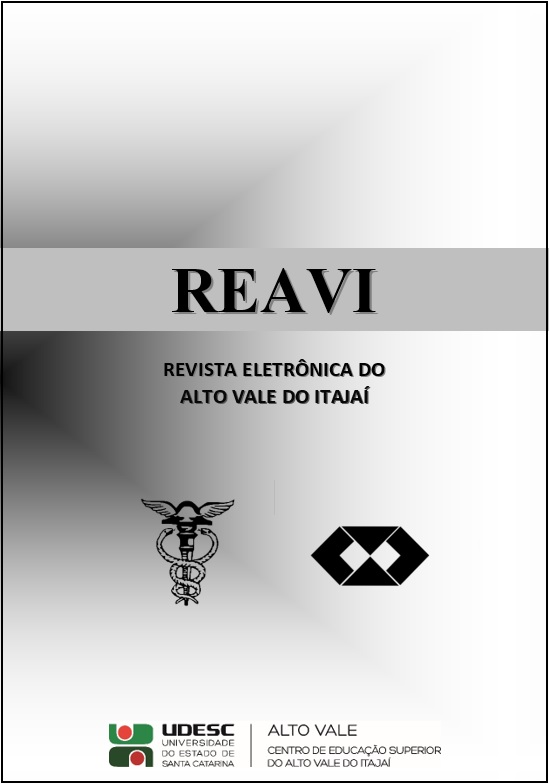Sistema produto-serviço voltado para a erradicação da fome e incentivo a agricultura sustentável
DOI:
https://doi.org/10.5965/2316419010172021082Palavras-chave:
Sistema Produto-Serviço, Fome Zero, ODS, Agricultura SustentávelResumo
A erradicação da fome e da pobreza e o incentivo a agricultura sustentável, são pauta para discussões a nível global, e são um caminho longo a ser percorrido. Como diretrizes, tem-se os dezessete Objetivos de Desenvolvimento Sustentável (ODS) da Organização das Nações Unidas (ONU), que agrupam metas a serem atingidas visando um mundo mais saudável e sustentável. O Sistema Produto-Serviço (Product-Service System – PSS), visa a desmaterialização, com foco nos resultados e soluções de problemas. Diante disso, o objetivo do estudo é evidenciar diretrizes importantes para a criação de propostas que contemplem o PSS e servir de incentivo a aplicação do mesmo. A lacuna de pesquisa foi definida a partir de análise bibliométrica, que evidencia a relevância do PSS, ODS, agricultura urbana, fome zero de forma isolada no meio acadêmico, mas quando agrupados os assuntos, pouco se encontra.
Downloads
Referências
AL-SAMARRAIE, H.; HURMUZAN, S.. A review of brainstorming techniques in higher education. Thinking Skills and Creativity, v. 27, p. 78-91, 2018.
AQUINO, A.M.; ASSIS, R.L. Agricultura orgânica em áreas urbanas com base na agroecologia. Ambiente & sociedade, v. 10, n. 1, p. 137-150, 2007.
BAINES, T.S. et al. State-of-the-art in product-service systems. Proceedings of the Institution of Mechanical Engineers, Part B: Journal of Engineering Manufacture, v. 221, n. 10, p. 1543–1552, 2007.
BARBOSA, B.A.; YADA, M.M. Utilização da matéria orgânica para agricultura sustentável. SIMTEC - Simpósio de Tecnologia da Fatec Taquaritinga, v. 6, n. 1, p. 82-88, 22 dez. 2019.
BEUREN, F.H. et al. Principais fatores críticos de sucesso para sistemas produto-serviço. 2012.
BEUREN, F.H. Desenvolvimento de um modelo conceitual para a caracterização de sistemas produto-serviço com base no seu ciclo de vida. 2013. Tese de Doutorado. Universidade Federal de Santa Catarina.
BEUREN, F.H.; PEREIRA, D.; FAGUNDES, A.B. Product-service systems characterization based on life cycle: application in a real situation. Procedia CIRP, v. 47, n. 1, p. 418-423, 2016.
BOUKHARAEVA, L.M.et al. Agricultura urbana como um componente do desenvolvimento humano sustentável: Brasil, França e Rússia. Cadernos de Ciência & Tecnologia, v. 22, n. 2, p. 413-425, 2015.
DAIM, T.U.; PLOYKITIKOON, P.; KENNEDY. E.; CHOOTHIAN, W. Forecasting the future of data storage: case of hard disk drive and flash memory. Foresight, v. 10, n. 5, p. 3449, 2008.
LIMA, T. CAPÍTULO 2–ODS 2 “Acabar com a fome, alcançar a segurança alimentar e melhoria da nutrição e promover a agricultura sustentável”. Os objetivos de desenvolvimento sustentável e as relações internacionais, p. 43. 2019.
LINDAHL, M.; SUNDIN, E.; SAKAO, T. Environmental and economic benefits of Integrated Product Service Offerings quantified with real business cases. Journal of Cleaner Production, v. 64, n. 1, p. 288–296, 2014.
MONT, O. Product-service systems: panacea or myth?. Lund University, 2004.
ONU – ORGANIZAÇÃO DAS NAÇÕES UNIDAS. Objetivo de Desenvolvimento Sustentável 2 - Fome zero e agricultura sustentável. Disponível em: https://brasil.un.org/pt-br/sdgs/2. Acesso em: 09 de setembro de 2021.
PIRES, V.C. Agricultura Urbana como Fator de Desenvolvimento Sustentável: Um Estudo na Região Metropolitana de Maringá. Pesquisa & Debate. Revista do Programa de Estudos Pós-Graduados em Economia Política, v. 27, n. 2 (50), 2016.
TUKKER, A. Eight Types of Product Service Systems: Eight Ways To Sustainability? Business Strategy and the Environment, v. 260, n. 13, p. 246–260, 2004.
VALENT, J.Z; OLIVEIRA, L.; VALENT, V.D.. Agricultura urbana: o desenvolvimento de um projeto social. DRd-Revista Desenvolvimento Regional em debate. Canoinhas, SC. Vol. 7, n. 2 (jul./dez. 2017), p. 4-19, 2017.
Downloads
Publicado
Como Citar
Edição
Seção
Licença
Copyright (c) 2021 Fernanda Hänsch Beuren, Marcos do Amaral , Andrey Lezan Nitz , Alexandre Borges Fagundes

Este trabalho está licenciado sob uma licença Creative Commons Attribution 4.0 International License.














